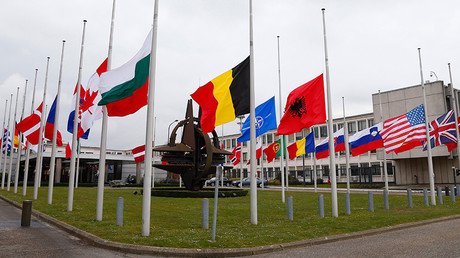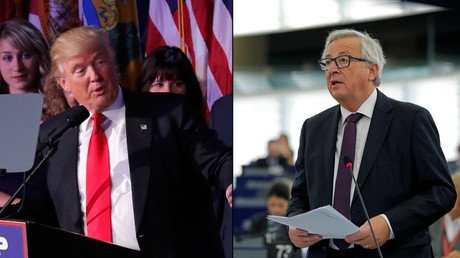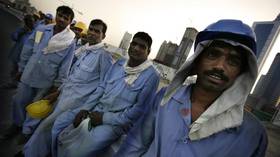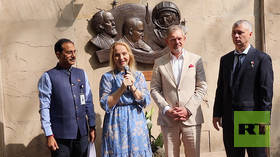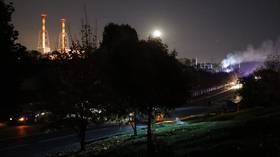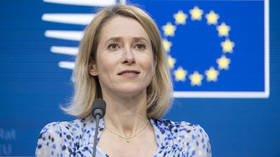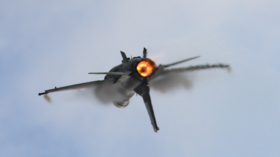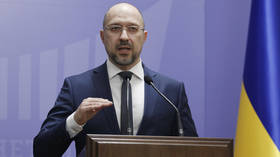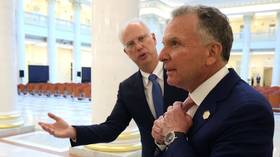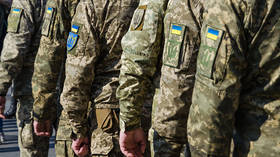EU will maintain Russia policies, even if US changes course – Mogherini
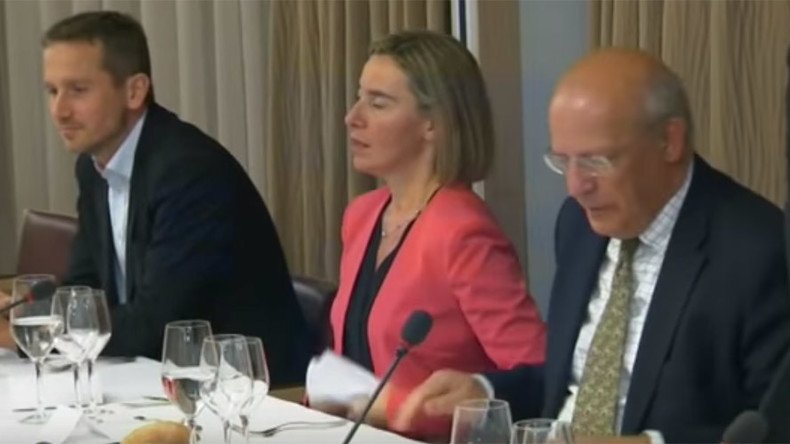
Brussels will pursue its own policies when it comes to Russia even if the new American administration abandons Obama’s course for US-Russian relations, the EU foreign policy chief announced after dining with EU Foreign Ministers.
“You know, the European Union has a very principled position on the illegal annexation of Crimea and the situation in Ukraine. This is not going to change, regardless of possible shifts in others’ policies,” Federica Mogherini said Sunday after dinner with the ministers.
Convened EU Foreign Ministers informal meeting tonight: agreed on strong partnership with #US on basis of our principles, values & interests pic.twitter.com/GBbrLXa91c
— Federica Mogherini (@FedericaMog) November 13, 2016
“I see the need for the Europeans to strengthen their defense and security agenda and cooperation, regardless of the changes in the administration in the United States,” she added, referring to President-elect Donald Trump.
On Monday, EU foreign ministers will officially meet and discuss plans to boost European defense cooperation, including the proposal for a European military headquarters.
Issuing her comments late Sunday night, Mogherini stressed that relations between Moscow and Brussels are not “black and white.” She said the EU is leading a “constructive but also selective engagement” with Russia.
“There is a strong principled position especially on Ukraine and on the other conflicts that we have to our east; and our attention to our eastern partners is going to stay and stay strong,” the EU’s chief diplomat stressed.
Commenting on the overall trend of EU foreign ministers’ attitude towards the president-elect Trump, Mogherini stated that the diplomats have managed to reach “unity” in their position.
While agreeing to “continue working on the strength of the transatlantic relation ... we all agreed on the fact that we will need to see which are going to be the policies of the next administration.”
“We have clear in mind what our positions are, both in terms of [the] EU’s interests and in terms of [the] EU’s principles; among these interests is for sure the need to work with the Americans, but, again, it will be up to them to determine their own foreign policy agenda,” she said.
Before the EU ministers entertained Mogherini at dinner, NATO chief Jens Stoltenberg warned of the dangers of American isolationism, and the impact it could have on European security, especially when dealing with Moscow.
“We have implemented the biggest reinforcement of our collective defense since the cold war. And the United States has significantly strengthened its commitment to European security, deploying a new armored brigade to eastern Europe and delivering equipment and supplies to support future reinforcements if needed. This is deterrence, not aggression. We do not seek to provoke a conflict, but to prevent a conflict,” Stoltenberg said in an article in Britain’s Observer newspaper on Sunday.
EU countries have expressed concern over the future of European security after Trump won the election on Tuesday. During his campaign, the Republican repeatedly criticized NATO, calling the organization “obsolete.” He also suggested that America might not defend fellow NATO countries that didn’t help reimburse the Washington for the cost of its troops and bases in Europe.
In addition to the future of NATO, the European capitals are also worried about the possibility of US-Russian rapprochement after Trump and the Russian president expressed hopes that they could work in that direction.
Jon Gaunt of Talk2meRadio.com said there was nothing wrong with seeking better relations with Russia.
“We’ve got to stop seeing the Russians as the enemy. We’ve got to talk to Putin. We’ve got a joint enemy at the moment, it’s called the Islamic State,” he told RT. “People want change, real change. I think that Donald Trump will bring that change and I think it’s good that we’ve got a US leader who now wants to talk with Russia. That can only be logical.”
